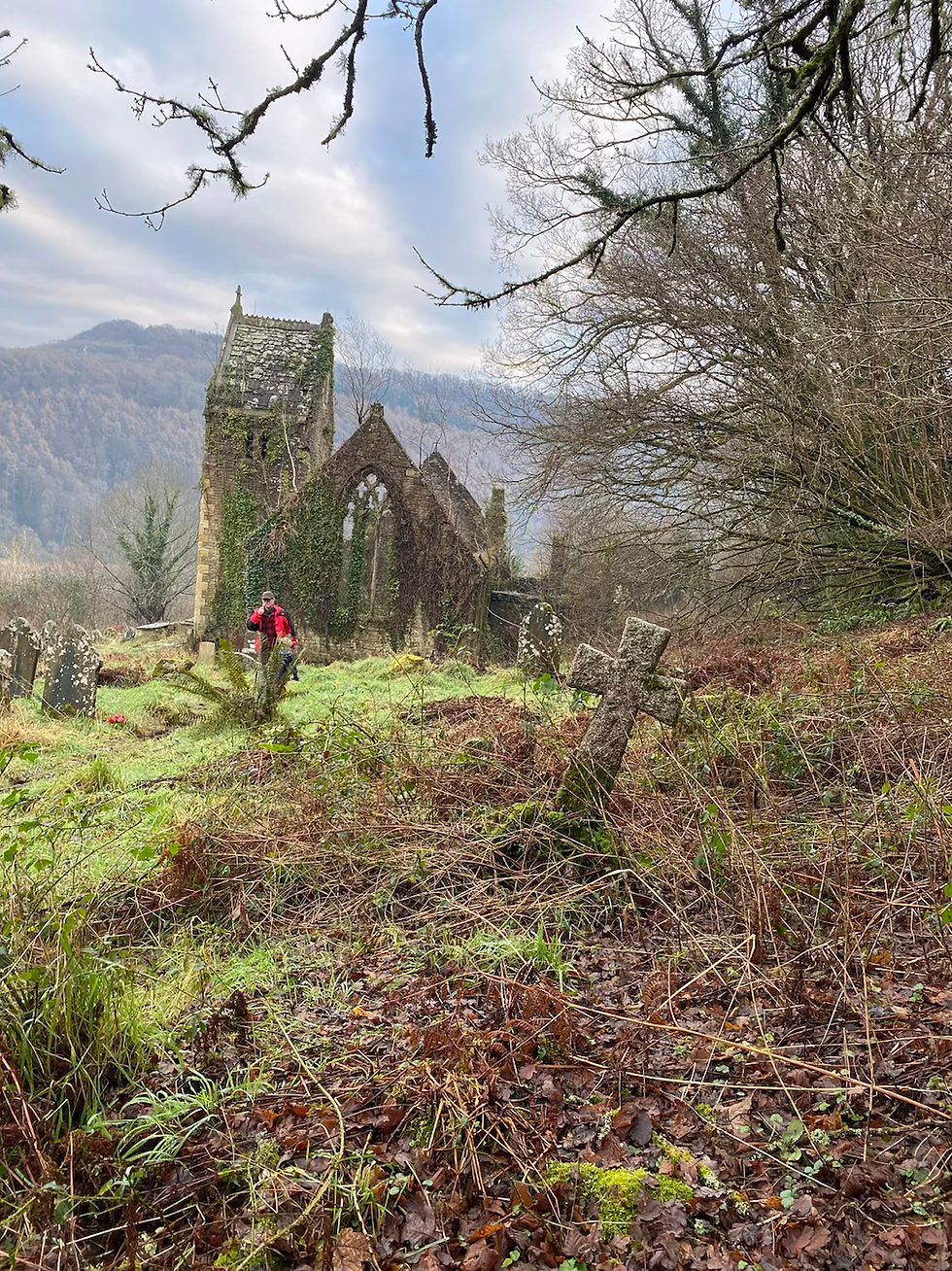There’s Death in Life and Life in Death: Part 2
- Jonathan.Crabtree

- Nov 6, 2021
- 5 min read
A reflection on 1st Corinthians 11:23-26 & All Saints’ Sunday
There’s always more to say about a subject, yet it never seems enough. With regard to yesterday’s post, as well
as today’s, the same sentiment applies. It’s with intention that I limit my words on these matters, for I believe you and I best learn by talking about words that affect or impact us. As followers of Jesus, I believe that we will learn more about theology with a balance of scriptural study, prayer, and discussion with others, whether with other people or reading others’ works. Today, I want to share a bit more about another contrast found in scripture in which there’s death in life and life in death. (I will intentionally exclude something – this is my encouragement to you to read and search for yourself 😊)

This Sunday, November 7th is All Saints’ Sunday, a time the Church specifically remembers those [saints] who passed away in the last year. Some congregations may allow folks to remember someone from at any point in the preceding years, and that’s ok, too. Because this Sunday is usually the first Sunday of the month, many congregations will celebrate the Lord’s Supper, too. (Though I contend for a weekly, even daily if possible, celebration of the Lord’s Supper. If Jesus said, ‘as often as you drink it, in remembrance of me,’ then I would hope that’s at least a weekly act.) There is something very unique about the Lord’s Supper, especially when considering All Saints’ Sunday.

First, the Lord’s Supper is the Holy Meal when Jesus institutes the New Covenant. The United Methodist Church believe in the Real Presence of Christ, a theology developed by John Calvinand embraced by John Wesley, the founder of Methodism. It’s different than the Roman Catholic’s understanding of Transubstantiation – the bread and wine become the actual body and blood of Christ and different than Martin Luther’s understanding of consubstantiation – the bread and wine is not actually the body and blood of Christ but it is. (That’s the best way to understand it without writing a paragraph or two!)

When we celebrate the Lord’s Supper on All Saints’ Sunday, aquestion often arises: What about those saints who passed away during our life time? To answer, we turn to the scripture and theology. We’ll look at 1st Cor. 11:23-26, then Heb. 11 & 12, and finally the “doxology” that many congregations sing every week. So grab your bible and follow along.
1st Cor. 11:23-26 – Paul writes to the Church in Corinth addressing many issues, one of which is unity in fellowship during worship services, particularly when they celebrate the Lord’s Supper. He uses a word anamnesis “remembrance” when referring to why they celebrate the Holy Meal. This word means, “not forgetting,” similar to our English amnesia, or ‘forgetting.’Remembering is essential to Jewish tradition and theology, as they ‘remember’ what God did for them in saving them in Egypt. They celebrate through certain festivals, and the most prominent one is the Passover. This celebration of God’s rescue is the time when Jesus institutes the New Covenant through celebrating the Lord’s Supper.
“Remembrance” in scripture is more than mental recall, closing our eyes to imagine, or just trying to think about Jesus. It has to be more simply because Jesus is alive. But, even though scholars cry that anmnesis is difficult to translate and understand, I disagree. We must simply understand the word as we inherit from our Jewish brothers and sisters do: an active participation in the presence of [God] Christ among us. Having never actually seen Jesus Christ, it may very well be difficult to participate in His presence, unless I simply offer a ‘mustard seed’ of faith in expecting to participate with Him. In re-telling the Gospel before celebrating the Lord’s Supper, as we often do, we are remembering by actively participating with Christ’s invitation to grace, forgiveness, and a seat as His Table, along with ALL of the Church.
Heb. 11 & 12 – Read through these two chapters and you’ll notice the “Hall of Faith,” and the “Faithful Motto” to keep our eyes fixed on Christ, the author, perfector of our faith. Hebrews 11 lists names, and represents those unnamed as well, and this ‘cloud of witnesses’ in Hebrews 12 surrounds us as ‘finish the race.’ Because we believe in the real presence of Christ at His Table, where else shall we run except to this table, one of grace, forgiveness, and remembrance?
Finally, let’s look at the doxology. The doxology is a grateful prayer, thanking God for blessings. In it we sing: “Praise God from whom all blessings flow! Praise God all creatures here below. Praise Him above ye heavenly hosts. Praise Father, Son, and Holy Ghost. Amen.” It’s actually the last stanza of a 12-verse hymn written by an English clergyman and bishop, Thomas Ken. The hymn is called, “Lord, now my sleep does me forsake,” a midnight devotional hymn, and it’s one of three. The other two are for morning and evening.
It’s in this ‘hymn’ we sing with ‘all creatures here below’ and those ‘above ye heavenly hosts.’ This hymn is usually after an offering, and the congregation is thanking God for the blessings of provision. It echoes John’s vision of the Lord’s throne roomin Revelation 5:13 -
“And every creature which is in heaven and on the earth and under the earth and such as are in the sea, and all that are in them, I heard saying: ‘Blessing and honor and glory and power be to him who sits on the throne, and to the Lamb, forever and ever!’”
Notice the vision includes ‘every creature which is in heaven and on the earth.’ This may sound unusual, but it’s really not. Remember the prayer Jesus taught His disciples? In both accounts in Matthew and in Luke, Jesus prays for the Lord’s will and Kingdom to be on ‘earth as it is in heaven.’ Finally, the next to last verse of Revelation is a promise of Jesus’ Second return and a prayer for his immediate presence in between this ‘gap.’This prayer, also called maranatha, is sometimes prayed during the Lord’s Supper in which the pastor/priest/vicar prays for the Lord’s presence at His Table. Guess what, Jesus is already there.

Because Jesus is already there at HIS table, and given John’s vision and the doxology proclaiming that all creatures on heaven and on earth are praising the Lord Jesus, AND because we are surrounded by ‘such a cloud of witnesses,’ we can peacefully take our place at the Table of Grace trusting that our host Jesus Christ is the Feast and Host with His Church on earth and His Church in heaven are seated together. Amen.
So while the Church awaits the Lords second return, we ’remember’ the Lord is present today at His Table. We ‘remember’ what He did, what He is doing, and what He will do. He will make all things new. He will build His kingdom on earth as it is in Heaven. While we wait, He invites us to join Him at the table and in the world.

So, this Sunday, I encourage you to worship with your local congregation, and celebrate the Risen Savior as we remember those who have gone on to join the Church in Heaven this past year. While the pain of their absence persists, the grace of our Lord Jesus pursues us. There truly is life and death. But, don’t forget, the Lord is the Creator of Life and the Conqueror of Death.














Comments